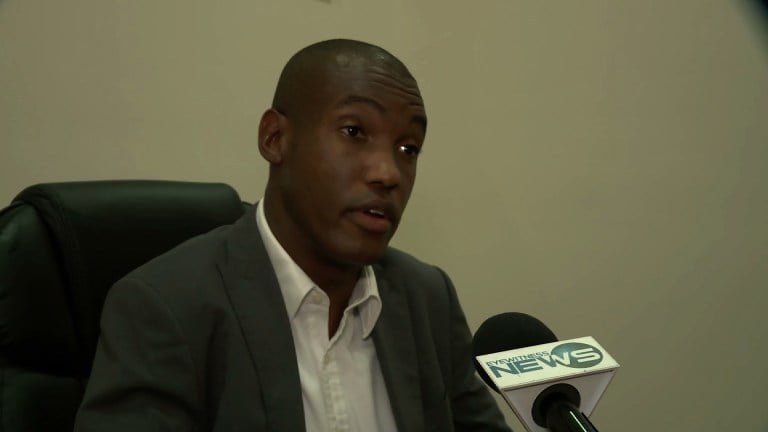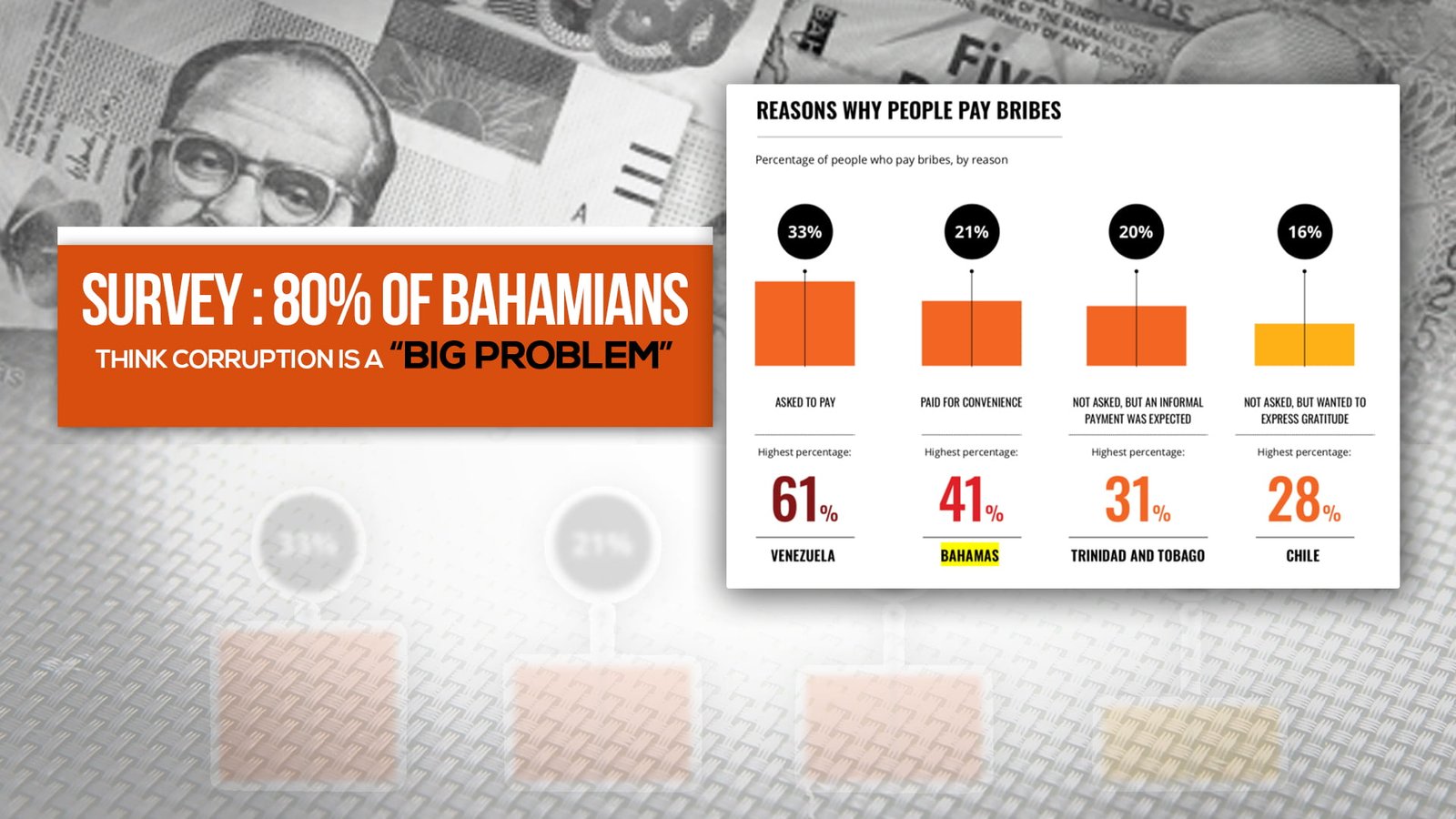Minnis administration working towards modernization and efficiency in government
NASSAU, BAHAMAS- Deputy Prime Minister K Peter Turnquest said today that civil servants ought to be able to deliver service ‘without the need for any kind of graft or incentive’.
Turnquest was responding to the latest Global Corruption Barometer (GCB) report for Latin America and the Caribbean by global civil society organization Transparency International.
Twenty percent of the survey respondents said they have paid a bribe, gave a gift or did a favor to have a public servant carry out an essential government service. The report also revealed that those people mostly paid a bribe for convenience.
Lemarque Campbell, attorney and anti-corruption specialist with Transparency International told Eyewitness News Online that government should look to reducing the ‘face-to-face’ contact between the public and civil servants by establishing moreover friendly online platforms for access to government services.

Speaking ahead of a Cabinet meeting, Turnquest said: “We have said from day one that we will not tolerate that kind of activity that we know has happened in the past. We work very hard to try and be efficient and transparent about what we do. We have implemented technology solutions to try and take away some of the need for that kind of thing. We want an efficient, well run, transparent service that works for the benefit for the people. To the extent that there has been any need for tip or public feels the need for some type of tip or gratuity they should bring that to the attention of the permanent secretary or the minister and I’m sure it will be dealt with.”
Turnquest continued: “This is the 21st century. For God’s sake we ought to be able to deliver service without the need for any kind of graft or incentive. That is what we are working towards; a modern, efficient government, utilizing technology and digital services to streamline processes.”
The Bahamas survey was conducted between January 31, 2019 and February 18, 2019, with 1,007 respondents.
The report revealed that 80 per cent of Bahamians surveyed view corruption in government as a big problem, while 79 per cent think government is directed by special interest groups. It furthered that just over 50 per cent of Bahamians believe government is doing a bad job at tackling corruption.

Campbell said: “The government has rolled-out an e-procurement system but that is not enough. The government needs to look at all government departments and ministries and see how they can reduce the face to face contact between civil servants and citizens.
“We should be scoring higher than places like Venezuela and other problematic countries when we boast of having a developed country with democratic principles.
Referencing the report, Campbell continued: “Among the key findings, when you compare this report to the last survey conducted in 2017 is that 20 per cent of persons said they paid a bribe for public services. That doubled when you compare the last report which said 10 per cent of respondents said they had paid a bribe.
“In the last report, most persons were optimistic on where the government was going with regards to having a plan to mitigate corruption. At that time 65 per cent said the government was doing well.
Campbell added: “Now, 52 per cent say the government is doing bad. It is significant to note that 41 per cent of persons said they paid a bribe for convenience. That is the highest in the entire Latin American region.”






